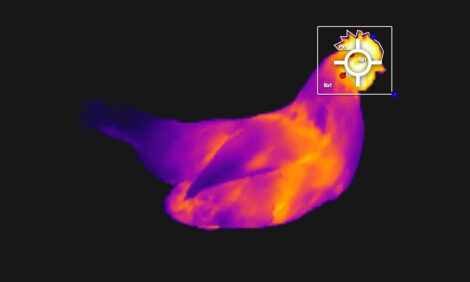



Saudi Arabia Poultry and Products Semi-Annual Overview - February 2005
By the USDA, Foreign Agricultural Service - This article provides the poultry industry data from the USDA FAS Poultry and Products Semi-Annual 2005 report for Saudi Arabia. A link to the full report is also provided. The full report includes all the tabular data which we have ommited from this article.Report Highlights:
Saudi Arabian poultry production and import estimates for CY 2004 and CY 2005 remain unchanged since our 2004 Poultry Annual report. However, sales of broiler meat by Brazil, the largest supplier of broiler meat to Saudi Arabia, increased sharply in CY 2004 at the expense of French exports, which decreased substantially during the first ten months of CY 2004 compared to the same period in CY 2003.
Poultry production
Saudi Arabian poultry production estimates for CY 2004 and CY 2005 remain unchanged since our August 2004 Poultry Annual Report ((GAIN SA4012) at 480,000 and 495,000 metric tons (mt) respectively.
Trade
Currently, the Kingdom relies on imports to satisfy about 50 percent of its total domestic
consumption of broiler meat. Estimates for broiler meat imports, both whole and parts, in
calendar year CY 2004 and CY 2005 remain unchanged from our estimates in August
(435,000 mt for 2004 and 443,000 mt for this year.) Poultry imports into the Kingdom
primarily consist of frozen whole birds.
Brazil, the dominant broiler meat exporter to Saudi Arabia, increased exports to the Kingdom
by 15 percent in CY 2004 compared to CY 2003 (333,223 mt in CY 2004 vs. 288,556 mt in
CY 2003). On the other hand, exports from France, the second leading broiler meat supplier
to the Kingdom, experienced a 26 percent decline for the first 10 months of 2004 compared
to the same period in 2003 (68,633 vs. 92,681 metric tons). The continued appreciation in
the value of euro compared to the U.S. dollar to which the Saudi riyal is fixed at a rate of
3.75, and the reportedly much lower Brazilian poultry production cost compared to French
producers are expected to further increase Brazilian domination of the Kingdom’s poultry
import market this year at the expense of French broiler meat exports. Besides the
appreciation of the Euro, another factor that had contributed to the decline in French poultry
exports to Saudi Arabia is the reported decline in poultry production in France.
Traditionally, Saudi broiler meat importers increase significantly their imports a couple of
months before the annual Haj season to stock up enough quantities in the expectation of
huge demand by restaurants, catering companies and hotels that cater to more than 2.5
million Muslim pilgrims who come to Mecca for pilgrimage each year. Foreign pilgrims, who
account for more than 50 percent of the total pilgrims, usually spend a few weeks in Mecca,
Jeddah and Madina before and after Haj rituals.
Major Saudi frozen broiler meat traders expect imports from Brazil to be significantly reduced
in the next few weeks due to at least two reasons:
Local poultry importers, who brought in huge quantities of Brazilian and French broiler meat last November & December to stock up for this year’s Hajj Season (January 18-23, 2005), have been very disappointed by the less than expected sales. The Government’s decision to restrict the movement of pilgrims outside of their camps reportedly resulted in less poultry meat sales by restaurants in major cities such as Jeddah and Madina. Hence traders anticipate that poultry meat imports will significantly decrease in the coming period in order for the market to consume available stocks and improve wholesale prices. Trading companies estimate that the market will need a few weeks to significantly reduce existing stocks.
According to the importers, Brazilian poultry prices (C&F) increased by as much as $150 per metric ton since October 2004 to $1,230 per metric ton for broiler meat bought in January for February delivery. The prices of French chickens are similar to those of Brazilian. The significant price increase in Brazilian frozen poultry meat is reportedly due to increased demand for Brazilian chicken in other markets such as Japan, Russia and EU countries as a result of the continued bird flu epidemic in Asian countries.
Note: Import figures for Brazilian and French broilers to the Kingdom are based on official data obtained from the two countries.
Further Information
To read the full report please click here
List of Articles in this series
To view our complete list of 2005 Semi-Annual Poultry and Products Semi-Annual reports, please click hereSource: USDA Foreign Agricultural Service - February 2005








